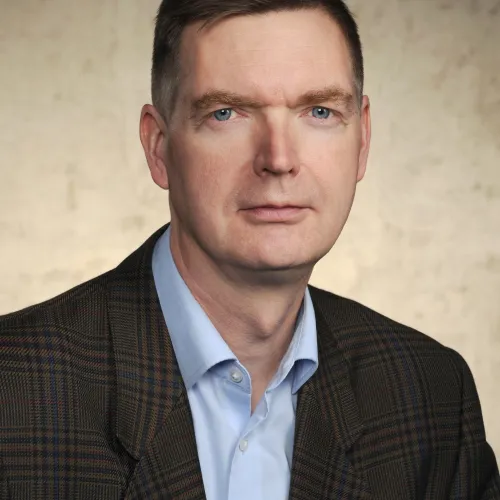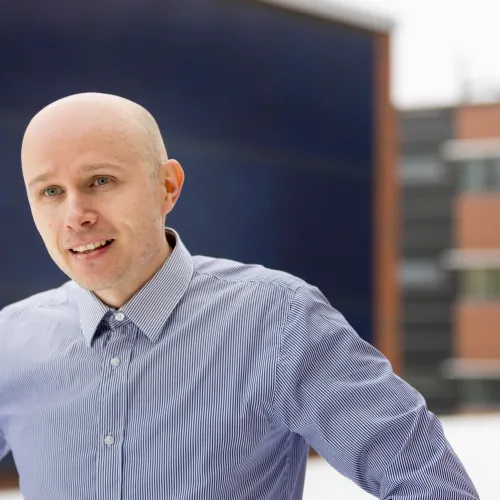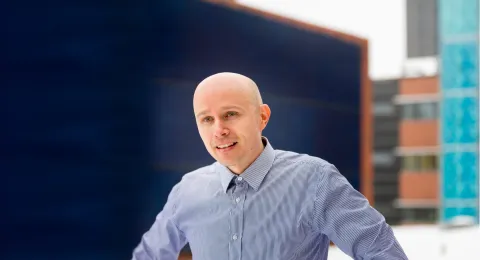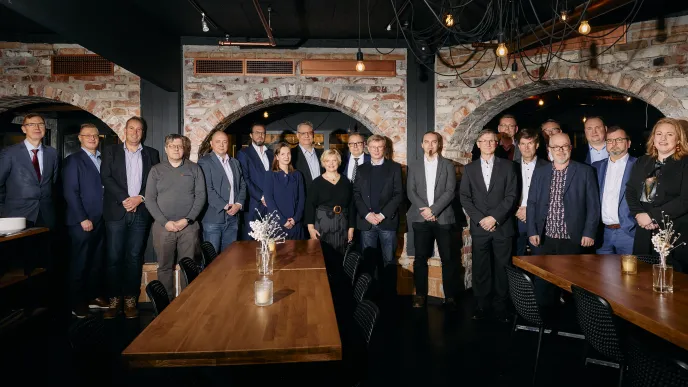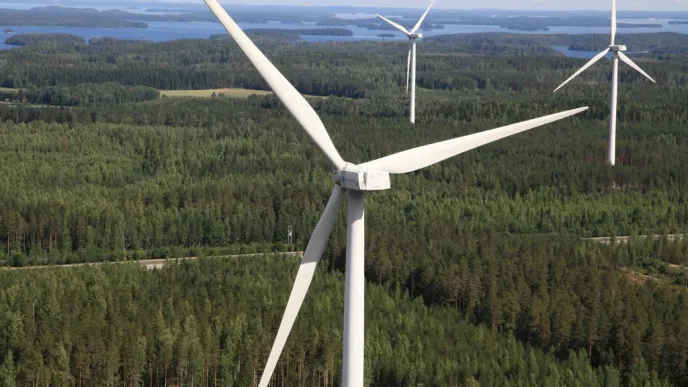LUT University has established a new Lappeenranta-based professorship in system technology and applications in renewable electricity generation. Antti Kosonen, doctor of science in technology and associate professor at LUT, has been appointed to the position and has started work at the beginning of December.
Kosonen’s experience in energy systems research is lengthy and wide-ranging. He has also made his mark internationally by building research collaboration in his field.
In his new position, Kosonen will not only teach and conduct research but also influence societal actors. Kosonen expects that the scientific outcomes of his work as a professor will help influence corporate and political decision-making.
“I especially hope to promote techno-economical choices that will further the green transition in a way advantageous to society – in Finland as well as globally,” Kosonen outlines and continues:
“My primary goal is to do my part to help us reduce climate emissions and detach from fossil fuels in order to keep our unique planet livable.”
Tilaamalla uutiskirjeemme saat sähköpostiisi noin 1–2 kertaa kuukaudessa luettavaa tutkimuksestamme puhtaaseen energiaan, ilmaan ja veteen sekä kestävään liiketoimintaan liittyen.
Fluctuating electricity production requires new know-how
Dean Olli Pyrhönen states that the professorship responds to the need to maintain a cost-efficient balance between intermittent electricity generation and consumption as the share of renewable energy sources grows.
“The strong increase in wind power production and the consequent turbulence in electricity markets have shown how important it is to find new technological solutions for maintaining a balance in the electricity system,” Pyrhönen explains.
LUT’s energy research is already extensive, and various research groups at LUT are exploring new approaches to energy system technologies. The newly appointed professor will collaborate with other research groups but also reinforce LUT's system technology research and add to its influence.
The professorship has been founded with donations from 30 donors, amounting to over a million euros. The largest donations were made by the Etelä-Karjalan Säästöpankkisäätiö foundation and the Etelä-Karjalan Osuuspankki bank.
According to Dean Olli Pyrhönen, a new professorship requires roughly a million euros in funding, and one could not have been established without external support.
Pyrhönen is extremely happy that the Lappeenranta area clearly wants to be involved in the development of renewable electricity production. South Karelia is home to a significant number of technology enterprises that develop energy technology products and solutions. Efficient and flexible energy consumption is an important question for the energy-intensive industry, which is prominently represented in the region.
Sector integration is an important research topic in system technology. It refers to the linking of different energy sectors to balance out their individual consumption and production peaks. It also enables saving energy and resources and utilizing industrial side streams.
“Research collaboration with LUT has already resulted in innovations and startups in the region. The new professorship will boost this trend. The renewal of the energy system creates a need for new technology and new energy products. Collaboration between businesses and research institutes on this matter is both essential and fruitful,” Pyrhönen points out.
What does system technology in renewable energy generation mean?
Balancing intermittent electricity generation and consumption is an essential question in system technology. Electricity storage is costly, which is why smart control is applied to reduce the need for storage. On the other hand, the aim is also to incorporate different types of natural flexibility, such as the charging of electric vehicles, heating of buildings and variations in industrial processes, into the demand response.
In practice, system technology examines issues such as energy system modeling and optimization and searches for technological solutions for achieving an energy balance. Application targets may include buildings, industry and transportation.
The hydrogen economy is one of the most recent factors affecting the demand response. A highly topical issue is determining how the hydrogen economy could provide industry with more capacity flexibility in a cost-efficient manner.
More information:
